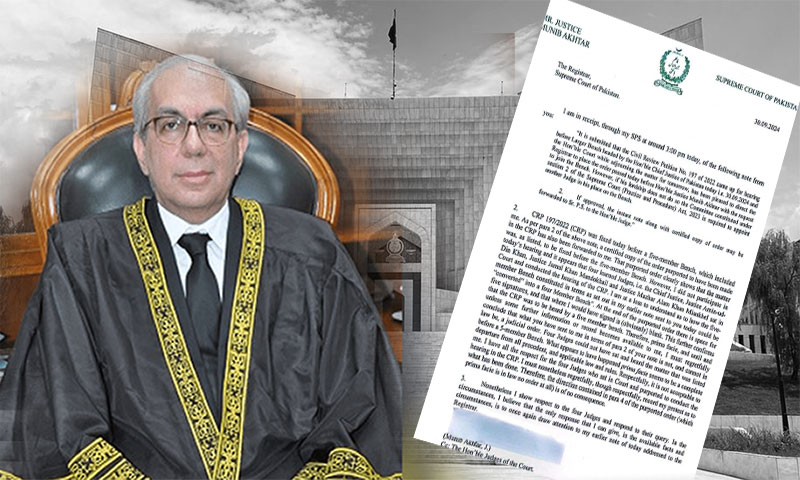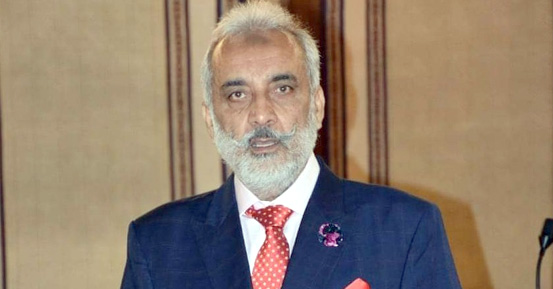Justice Muneeb Akhtar Raises Objections to 4-Member Bench in Article 63-A Review Case

Islamabad:Justice Muneeb Akhtar of the Supreme Court has written another letter to the Supreme Court Registrar, raising significant objections regarding the hearing of the review petition on Article 63-A by a 4-member bench in his absence.
In his letter, Justice Akhtar questioned the legal status of the 4-member bench, noting that the review case was originally scheduled to be heard by a 5-member bench. He highlighted that he received a written order for the hearing on Monday, which bore the signatures of four judges, including his name, but without his signature.
Justice Akhtar expressed his respect for the four judges who conducted the hearing but asserted that the proceedings on Monday were not in accordance with the law and established protocols. He indicated that he wishes to formally protest against the written order for the hearing held on Monday, stating that it does not constitute a judicial order and lacks legal standing.
The review petition concerning Article 63-A was presided over by Chief Justice of Pakistan, Justice Qazi Faez Isa, along with Justices Muneeb Akhtar, Ameen ud Din Khan, Jamal Khan Mandokhel, and Mazhar Alam Khan Miankhel as part of a larger 5-member bench. However, Justice Muneeb Akhtar chose to recuse himself from the bench and communicated his reasons for this decision in his letter, which also contained concerns regarding the restructuring of the Practice and Procedure Committee.
Notably, the Supreme Court Bar Association had filed a petition in 2022 seeking a review of the Supreme Court’s interpretation of Article 63-A. The bar requested the court to reconsider its ruling on not counting the votes of dissenting members in presidential ordinances, arguing that this approach contradicts the spirit of the constitution.
The Supreme Court, on May 17, announced that votes of dissenting members would not be counted in Parliament. This decision was made by a 5-member bench led by then Chief Justice Umar Ata Bandial, which ruled with a 3-2 majority, emphasizing that party switching undermines the integrity of democracy.






